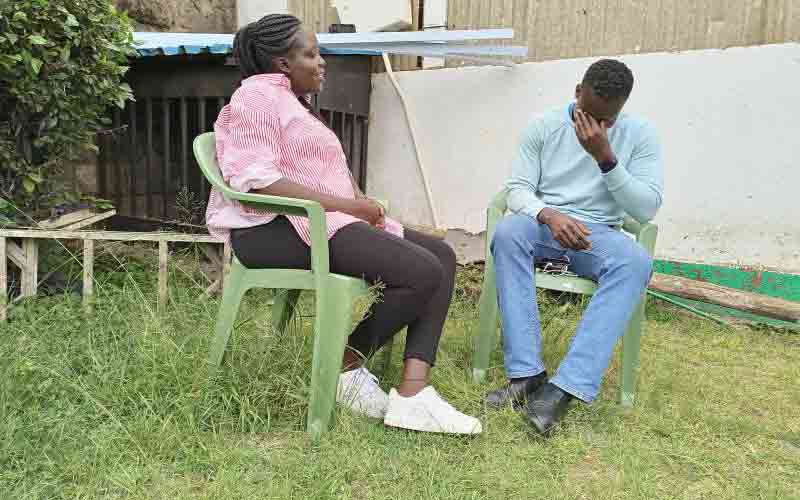
Julian Guyana with his wife Georgina Obonyo have a discussion outside Basic Needs Basic Rights offices in Nairobi. [Courtesy]
He survived alcoholism, three suicide attempts. He later discovered that he is bipolar, but Julian Guyana Onyango, a father of four is now a mental health champion.
The 36-year-old from Ahero in Kisumu County pegs his alcoholism to a childhood that saw him tasting alcohol at the age of eight. After all, his late father, though tough when sober, was one hell of a happy alcoholic, “the best father one would wish for. The only times we saw him that happy was when he was drunk,” recalls Guyana, the third born in a family of six.
 The Standard Group Plc is a multi-media organization with investments in media
platforms spanning newspaper print
operations, television, radio broadcasting, digital and online services. The
Standard Group is recognized as a
leading multi-media house in Kenya with a key influence in matters of national
and international interest.
The Standard Group Plc is a multi-media organization with investments in media
platforms spanning newspaper print
operations, television, radio broadcasting, digital and online services. The
Standard Group is recognized as a
leading multi-media house in Kenya with a key influence in matters of national
and international interest.











